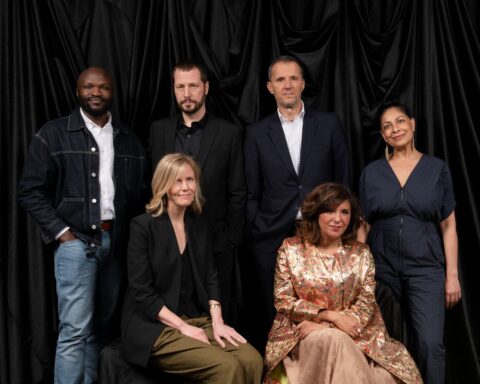Anatomy of Violence
(Canada/India, 93 min.)
Dir. Deepa Mehta
Starring: Janki Bist, Vansh Bhardwaj, Davinder Singh, Jagjeet Sandu, Mukti Das, Suman Jha, Seema Biswas
Programme: Masters (World Premiere)
Anatomy of Violence introduces something new and exciting to documentary culture. This film from Deepa Mehta combines the director’s early roots in documentary with the courage of her dramas like Water and Heaven on Earth. Mehta takes the true story of a young woman who was gang raped by six men on a bus in India in 2012 and revisits the event as a kind of cinematic docu-fiction.
The director omits the brutal rape itself, after which the victim died as a result of her injuries. Instead, Mehta interrogates the mentality that fuels rape culture as she observes how men develop a sense of entitlement over women and their bodies. Anatomy of Violence challenges actors to interpret the backstories of the sexual aggressors and the victim, using immersive workshops, found props, and location shoots to inhabit authentically the minds of their characters. It’s an unsettling film experience, but a rewarding one as well.
The film is bound to make viewers uncomfortable, and rightfully so, as the adult actors imagine their characters at a childhood age. Mehta explores traumatic events within a child’s formative years that might precipitate such an aggressive attitude towards women. As an omniscient narrator tells the story of each young man, Anatomy of Violence subjects viewers to provocative images that are hard to endure. Witness the simulated assault of a young boy as his uncle molests him violently in their small room, while an older neighbour subjects another boy to inappropriate touching and seduction, and one future aggressor sleeps in close proximity to his sister and mother after supporting the family for long hours.
Dispersed throughout the scenes of the maturing aggressors, Anatomy of Violence presents images of the victim (Janki Bist) throughout various stages of her life from youth to adulthood as she celebrates her 23rd birthday just hours before the violent attack. Anatomy of Violence draws characters to a convergence from different walks of life, but many of their circumstances are complementary. Elements react violently when mixed together.
Mehta and her actors judge not the characters who do the dirty deed, but rather the circumstances that enable them to do so. The range of players aids the reality of the film, as the ensemble includes non-professional actors like Bist to seasoned professionals like Mehta’s frequent collaborator Seema Biswas (Midnight’s Children). Many of the actors assume multiple roles, which adds to the film’s self-reflexive power as Mehta conveys that the issue of male violence against women won’t be resolved unless there is a collective appraisal of society’s ills.
Anatomy of Violence makes this interrogation intensely urgent through Mehta’s unique direction. The director roots the film in realism as she rejects the trimmings of a large production. Shot on the sly in the streets and small homes of India, the film has the rawness and authenticity of neorealism, direct cinema, and documentary alike.
The film features scenes that are obviously staged, like parties, cooking sessions, and scenes of sexual violence that make one’s skin crawl. The cinematography favours handheld jitteriness and autofocus, while narration, archival footage, and mock interviews add tangible elements of both drama and documentary. The newsreel footage and mock interviews are especially troubling as they show a nation swift to react and condemn the men, but then quickly reverts to the habit of blaming the victim and starting the cycle anew. The film implores viewers to detach themselves from the world they witness and wonder what kind of society puts the onus on the prey, rather than seeks to remedy the circumstances that lead to her victimisation.
Mehta’s Anatomy of Violence is exactly the kind of film one hopes to encounter at a festival. This exhilarating experiment in film form is bold, pioneering filmmaking unlike anything we’ve seen before. Anatomy of Violence is the bravest risk of Mehta’s career both formally and thematically as the film envisions new terrain for cinema. Is it true crime, mockumentary, hybrid film, or docu-drama? Anatomy of Violence is all of these forms and none. Let’s call it Mehta-fiction.
Anatomy of Violence screens:
-Saturday, Sept. 17 at 9:30 PM at TIFF Bell Lightbox 2
TIFF runs Sept. 8 – 18. Please visit tiff.net for more information.










